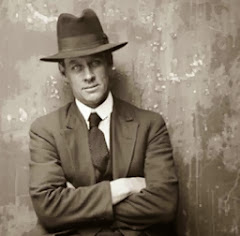"The Packers-13 planetary system is remarkable," said NASA scientist Jack Lissaue, pointing to a computer screen filled with speckles of light, chopped into a grid. He was pointing to one of those specks of light, nodding his head. His colleague, Dr. Batalha, said the data looked like the end-less stream of bubbles in a glass of champagne. She was right.
Lissaue and Batalha and many others had been working on the Kepler Mission since the spring of 2009. Like many goals of great-ness, it was a long-term commitment, requiring sacrifice and absolute focus. They were looking for candidates, out there, in the deep-ness of infinity. Are there many planets out there? Are there any like earth, racing around a sun like our sun? Are there any in the "habitable zone"?
Dr. Lissaue had asked me to join him at the NASA Ames Research Center on this Wednesday before the Super-Bowl in order to "show me some-thing big" - that's how he put it in his letter. He mentioned that I "simply must arrive" prior to the Super-Bowl.
I was intrigued and I trusted him, so I packed my bags and took the next flight out of Wisconsin.
The Kepler Mission was designed to stare at a specific neighborhood in the Milky Way without blinking for a few years, in order to measure the individual bright-ness of over 100,000 stars. By watching the slightest changes in bright-ness for each sun, researchers were able to detect orbiting planets as they crossed between earth and that sun. This revolutionary brand of exo-planetary science had quickly proven that there were many, many stars with planets in our galaxy, but also, that there were many plants located in that 'just right' zone where liquid water was a possibility. This was excitingg, but I already knew about that. So I knew the Kepler team must have found some-thing stunning when Lissaue sent me that letter late last week.
But what did it have to do with the Super-Bowl?
Lissaue quickly spilled the beans: "This system, Packers-13, it's amazing on so many levels... It’s amazingly compact, it’s amazingly flat, there’s an amazingly large number of big planets orbiting close to the star - we didn’t know such systems could even exist!" He said, still pointing at the computer screen, almost shaking with excitement. Essentially, Lissaue told me that the Kepler Mission had only begun to under-stand the enormous possibilities of planets and solar systems and how they can be arranged and behave. "And all of that is quite extra-ordinary," he continued, "but that's not why I named it the 'Packers-13' system."
"As you know, the Packers are playing for their 13th NFL Championship this Sunday, and I will guarantee you that they win it," he pronounced triumphantly, pounding his fist on the desk, eyes wild. He turned back to his computer screen, to the grid, and began zooming in on the system. It was apparent even before he reached the greatest magnification: The star itself had the Packers' logo burned into it's surface. There was no mathematical explanation for it, but there it was, perfect in its depiction.
"That's ... that's bizarre, Jack," I murmured half stunned, gazing at the image. "What do you thi..."
He cut me off, speaking quickly now, "It's beyond bizarre, but even more-so when you consider the timing of it's discovery. For starters, it has 13 planets, several of them just happen to be excellent candidates, and it's all been growing since the beginning off the year... Growing rapidly, and gaining momentum. It's almost like these planets found us, really. And the more they grow the brighter their luminosity, it's unfathomable. I thought I was going goosey so I had Dr. Batalha confirm the data and it stands up."
He stood up and walked quickly across the laboratory, to another machine. "So that's stranger than infinity," he said, tapping buttons, "but when we asked the earth-based telescopes to confirm the location of these planets, and this remarkable Green Bay star, they also picked up a message, in English, within their astro-seismological returns."
He went over to the printer, where a sheet of paper was now crinkling through, and handed me the sheet of crisp paper. It read: Congratulations, from the time-bending Packers fans of the Kepler Region!
I was speech-less. I was thrilled.
"Oh, and they sent an audio track," said Lissaue, hitting another button.
And in a strange chorus of voices, we heard: "Duu-da-DA-dud-da-da! Go PACK Go!"
After a long time I regained my composure: "Well I guess we better find some tickets, Lissaue!"
"I already got 'em, buddy, now let's hit the road!"
skip to main |
skip to sidebar

F.G., circa 1929

the ORIGINAL packers twitter-man
MPU Archives
Copyright 1929-2014
Meat Packers Union
All rights reserved
Meat Packers Union
All rights reserved

